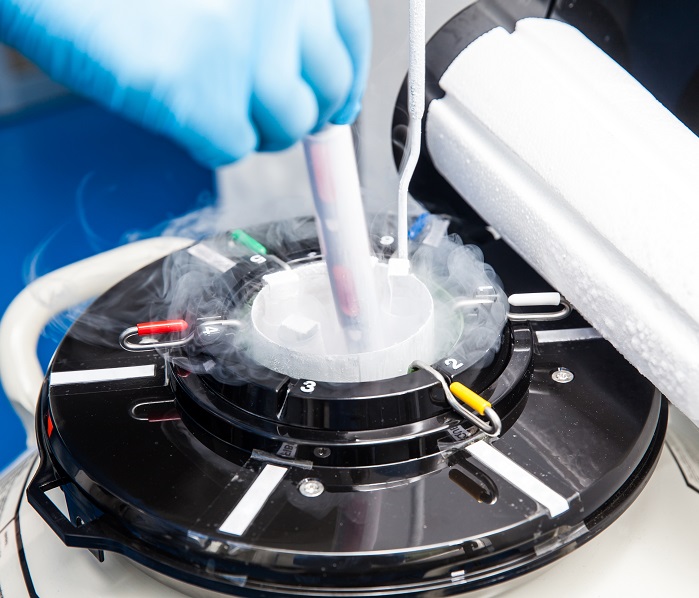When it comes to fertility treatments, India is a top destination for couples from around the world. The country’s excellent success rate for IVF procedures is one of the main reasons behind this popularity. If you are considering undergoing IVF in India, it is important to understand the factors that influence success rates. In this comprehensive guide, we will discuss all aspects of IVF success rates in India and help you make an informed decision about your treatment.
As with any medical procedure, the success of in-vitro fertilization (IVF) treatment depends on a number of factors. The most important factor is the age of the woman undergoing treatment. IVF success rates under 35 Women have the highest success rates, while those over 40 have the lowest success rates. Other factors that can influence success include the cause of infertility, previous pregnancies, and overall health.
In India, the success rates for IVF treatment are excellent. The country’s leading fertility clinics have some of the highest success rates in the world. For example, This means that more than eight out of ten women who undergo IVF treatment in India will go on to have a baby.
The high IVF success rates in India are due to a number of factors. One of the most important factors is the experience and expertise of the country’s fertility doctors. Indian fertility specialists are world-renowned for their skills and knowledge in reproductive medicine. They have helped thousands of couples from around the world to have children.
Another factor that contributes to the high success rates of IVF in India is the use of cutting-edge technology. Indian fertility clinics are equipped with the latest in IVF equipment and facilities. This ensures that all procedures are carried out to the highest standards.
In addition, Indian fertility clinics follow international best practices and guidelines. This means that they offer couples the best possible chance of success. Assisted reproductive technology (ART) covers a wide range of procedures. The most common form of ART is in vitro fertilization (IVF). A baby’s first smile. The pitter patter of little feet. The joy of becoming a parent. For many couples, these cherished moments are made possible through assisted reproductive technology (ART).
If you are considering undergoing IVF treatment, India is an excellent choice. The country’s high success rates mean that you have a great chance of having a baby. With the help of experienced fertility specialists and cutting-edge technology, you can give yourself the best possible chance of success.
Contents
- 1 - Boosting the success rate of IVF procedure is dependent on a number of factors as given below:
- 2 - Frequently Ask Questions for IVF success rate in India
- 3 - 1. What Is the Success Rate of IVF in India?
- 4 - 2. What Is the Success Rate of IVF First Time?
- 5 - 3. What Is the Success Rate of IVF with Genetic Testing?
- 6 - 4. What Is the Success Rate of IVF Using Donor Eggs?
- 7 - 5. How to Improve IVF Success Rates?
- 8 - 6. What Is the Success Rate of IVF with Frozen Embryos?
- 9 - 7. How to Increase IVF Success Rates?
Boosting the success rate of IVF procedure is dependent on a number of factors as given below:
- The age of the woman: IVF success rates by age is one of the important factors. Women under 35 have the highest success rates while those over 40 have the lowest success rates.
- The cause of infertility: If the cause is due to male infertility issues, then the success rate is lower as compared to when the cause is due to female infertility issues.
- Previous pregnancies: Women who have had successful pregnancies in the past are more likely to have a successful IVF pregnancy.
- Overall health: A woman’s overall health is an important factor in the success of her IVF treatment. If she is generally healthy, she has a higher chance of success.
- The experience and expertise of the fertility doctor: Indian fertility specialists are world-renowned for their skills and knowledge in reproductive medicine. They have helped thousands of couples from around the world to have children.
- The use of cutting-edge technology: Indian fertility clinics are equipped with the latest in IVF equipment and facilities. This ensures that all procedures are carried out to the highest standards.
- Following international best practices and guidelines: Indian fertility clinics follow international best practices and guidelines. This means that they offer couples the best possible chance of success.
- Infertility duration: The amount of time it takes for a couple to conceive depends on many factors, including whether or not they are able to conceive as quickly as possible.
- Infertility Type (primary or secondary): In the event of a primary infertility diagnosis, doctors will first check your ovaries and fallopian tubes. If they are both normal, procedures specific to female infertility (such as hysterosalpingogram or HSG) will be recommended.
- The sperm, egg, and embryo’s quality: The quality of the sperm, egg, and embryo is an important factor in the IVF success. If any of these are of poor quality, it will decrease the chances of success.
- Development of the endometrium: The endometrium is the lining of the uterus that thickens during each menstrual cycle in preparation for implantation. If the endometrium is thin, it can prevent implantation from occurring.
a. The thickness of the uterine wall: The uterine wall needs to be thick enough to support a pregnancy. If it is too thin, it can cause problems with implantation.
b. The presence of uterine fibroids: Uterine fibroids are benign (non-cancerous) growths that can develop in the uterus. They can cause problems with implantation and increase the risk of miscarriage.
c. The use of donor eggs or sperm: The IVF success rate is lower when using donor eggs or sperm. This is because the quality of the eggs and sperm is not as good as when using your own. When it comes to donor egg ivf success rates, there are a few factors to consider. First, the quality of the eggs is extremely important. Second, the ability of the doctor to successfully implant the embryo is also key. Third, the age of the woman receiving the eggs is an important factor. fourth, how many times a woman has footballer an embryo also matters. All of these factors play a role in determining donor egg ivf success rates.
- Maintain a healthy body mass index: A BMI of 30 or higher can decrease the IVF success rate. This is because obesity can cause problems with ovulation and implantation.
A. Stop smoking: Smoking has been shown to decrease rate of IVF. This is because it can damage the eggs and sperm, as well as the lining of the uterus.
B. Reduce stress: Stress can have a negative impact on the success of IVF. This is because it can interfere with ovulation and implantation.
C. Get enough sleep: Sleep is important for overall health and well-being. It can also help to reduce stress levels.
D. Eat a healthy diet: A healthy diet is important for overall health and well-being. It can also help to reduce stress levels.
E. Exercise regularly: Exercise has many benefits for overall health and well-being. It can also help to reduce stress levels.
F. Acupuncture: Acupuncture has been shown to improve the IVF success rate in India. This is because it can improve blood flow to the uterus and increase the chances of implantation.
G. Herbal supplements: Herbal supplements can help to improve the rate of IVF success. This is because they can improve blood flow to the uterus and increase the chances of implantation.
H. Make changes in your lifestyle: Making changes in your lifestyle can help to improve IVF. This is because it can improve blood flow to the uterus and increase the chances of implantation.
- Take note of health supplements: There are many health supplements that can help to improve the IVF success rate in India. This is because they can improve blood flow to the uterus and increase the chances of implantation. Some of these supplements include:
Vitamin C
Vitamin E
Coenzyme Q-
Folic acid
Omega-three fatty
- Genetic testing before fertilization is advised: Preimplantation genetic diagnosis (PGD) or screening (PGS) can be done on embryos before implantation. This can help to ensure that only healthy embryos are implanted, which can improve IVF.
- Protocol selection is individualized: The IVF type protocol used can impact the success rate. This is because different protocols can be better suited for different patients. Your doctor will individualize your protocol based on your specific situation.
- Monitoring during treatment is important: IVF can be improved by monitoring the patient during treatment. This is because it can help to ensure that the treatment is working and that the embryo is developing properly.
- Improving the chances of implantation of the embryo: There are many things that can be done to improve the chances of implantation. This is because implantation is a crucial step in the IVF process.
- Be patient and persistent: The success rate of IVF can vary from cycle to cycle. This is why it is important to be patient and persistent. If the first cycle does not work, do not give up hope. Many couples go on to have successful cycles after the first one fails.
Frequently Ask Questions for IVF success rate in India
1. What Is the Success Rate of IVF in India?
The Success rate of IVF in India depends on various factors such as the age of the woman, her ovarian reserve, the cause of infertility, and whether or not she has had previous IVF cycles. The average success rate for all these factors is about 30 to 35%. However, if the woman is under 35 years old and has a good ovarian reserve, her success rate could be as high as 50-60%. If the woman is over 40 years old, her IVF rate would be lower, about 20-30%.
2. What Is the Success Rate of IVF First Time?
The success rates of IVF first time vary depending on a number of factors, such as the age of the woman, the quality of her eggs, and the cause of infertility. However, on average, around 50 percent of couples who try IVF will achieve a successful pregnancy. This number increases to around 65-70 percent for couples who have undergone IVF treatment before.
3. What Is the Success Rate of IVF with Genetic Testing?
IVF with genetic testing has a high success rate. It can help improve IVF by identifying which embryos have the best chance of implanting and resulting in a healthy pregnancy. Depending on the type of genetic testing used, the rate of success can be increased by as much as 30%.
4. What Is the Success Rate of IVF Using Donor Eggs?
The success rates of IVF using donor eggs can be quite high, depending on a number of factors. The age of the egg donor is one of the most important factors, with younger donors generally having higher success rates. The rate of success also depends on the skill and experience IVF specialist, as well as the overall health of both the mother and father. In general, however, the use of donor eggs can significantly increase the chances of a successful pregnancy through IVF.
5. How to Improve IVF Success Rates?
IVF rates of success have improved dramatically over the past few years, thanks to advances in technology and medical understanding. However, there are still many factors that can affect the success of IVF treatment, and it is important to work with a skilled and experienced team to give yourself the best chance of success.
One of the most important things you can do to improve your IVF rates of success is to choose an experienced fertility clinic with a good track record. Make sure to ask about their success rates for patients with your similar diagnosis, as this can vary widely from clinic to clinic. It’s also important that you feel comfortable with your doctor and staff, as this will help you relax and feel confident throughout the process.
6. What Is the Success Rate of IVF with Frozen Embryos?
IVF rates of success with frozen embryos vary depending on the clinic, but typically range from 50-65%. This success rate is slightly lower than the success rate for IVF with fresh embryos, which is approximately 70%. However, because frozen embryos can be stored for later use, they offer couples more opportunities to achieve a successful pregnancy.
7. How to Increase IVF Success Rates?
There are a few things you can do to increase your IVF success rate naturally. One is to make sure you’re taking a multivitamin every day. Another is to make sure you’re getting enough omega-3 fatty acids. You can do this by eating oily fish like salmon or tuna, or by taking a supplement.
Another thing you can do is to make sure you’re not stressed out. Stress can have a negative impact on your fertility. So try to relax and get plenty of sleep. And lastly, make sure you’re drinking enough water and avoiding caffeine and alcohol. All of these things can help improve your chances of conceiving naturally.




